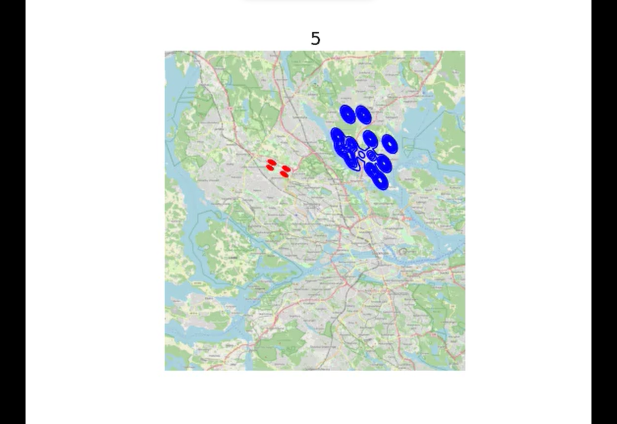Re-estimation of Activity-based Model using Mobile Phone Data: A Case Study of Stockholm Before and During Covid-19
The purpose of this project is to understand the undergoing process behind human spatiotemporal decisions in performing daily trips by re-estimating an agent-based model (Scaper) using mobile Phone Data in Stockholm in 2019 and 2020.
In this project, we develop a latent-based framework to re-estimate a Dynamic Discrete Choice Model (Västberg, Karlström, Jonsson, & Sundberg, 2020), using mobile phone data, which allow us to infer travel attributes such as the mode, activities, and duration from these spatiotemporal sequences. The model
also generates synthetic populations with activity-travel mobility patterns. Our case study consists of using our model with mobile phone records to estimate and simulate populations in two separate and socio-economically different areas in Stockholm. We also investigate how Covid-19 has differently affected travel behaviour in these areas as well as how it has impacted the existing segregation within the city.
Our model demonstrates its ability to estimate as well as simulate travel sequences. Results show how travel behaviour has changed in both areas and how segregation has been accentuated during the pandemic.
*Dynamic heatmap of individuals living in eastern and western areas during the day (2019)

